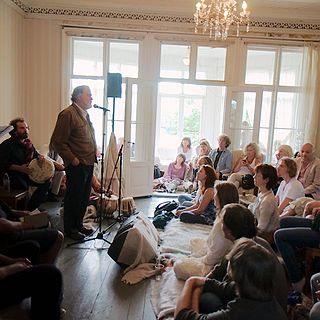A Quote by Carl Jung
Part of the human Self or Soul is not subject to laws of space and time.
Related Quotes
I am part of the sun as my eye is part of me. That I am part of the earth my feet know perfectly, and my blood is part of the sea. My soul knows that I am part of the human race, my soul is an organic part of the great human race, as my spirit is part of my nation. In my own very self, I am part of my family.
Humility consists of knowing that in this world the whole soul, not only what we term the ego in its totality, but also the supernatural part of the soul, which is God present in it, is subject to time and to the vicissitudes of change. There must be absolutely acceptance of the possibility that everything material in us should be destroyed. But we must simultaneously accept and repudiate the possibility that the supernatural part of the soul should disappear.
We don't save our soul and leave our emotions and our feelings and our body and all the rest of it out. That's just a way of talking that emphasizes the soul is so fundamental that we can, in some cases, treat it as the whole person because it actually is the thing that integrates all of these aspects of the self and makes them work together. Now, I don't think we can find a passage in the Bible that says that. We have to read and study how it addresses the soul, and we then see that it is the deepest, most vital part of the human self.
Teaching, like any truly human activity, emerges from one's inwardness, for better or worse. As I teach I project the condition of my soul onto my students, my subject, and our way of being together. The entanglements I experience in the classroom are often no more or less than the convolutions of my inner life. Viewed from this angle, teaching holds a mirror to the soul. If I am willing to look in that mirror and not run from what I see, I have a chance to gain self-knowledge-and knowing myself is as crucial to good teaching as knowing my students and my subject.
The laws of Nature take precedence of all human laws. The purpose of all human laws is one - to defeat the laws of Nature. This is the case among all the nations, both civilized and savage. It is a grotesquerie, but when the human race is not grotesque it is because it is asleep and losing its opportunity.
While, on the one hand, the end of scientific investigation is the discovery of laws, on the other, science will have reached its highest goal when it shall have reduced ultimate laws to one or two, the necessity of which lies outside the sphere of our cognition. These ultimate laws-in the domain of physical science at least-will be the dynamical laws of the relations of matter to number, space, and time. The ultimate data will be number, matter, space, and time themselves. When these relations shall be known, all physical phenomena will be a branch of pure mathematics.





































